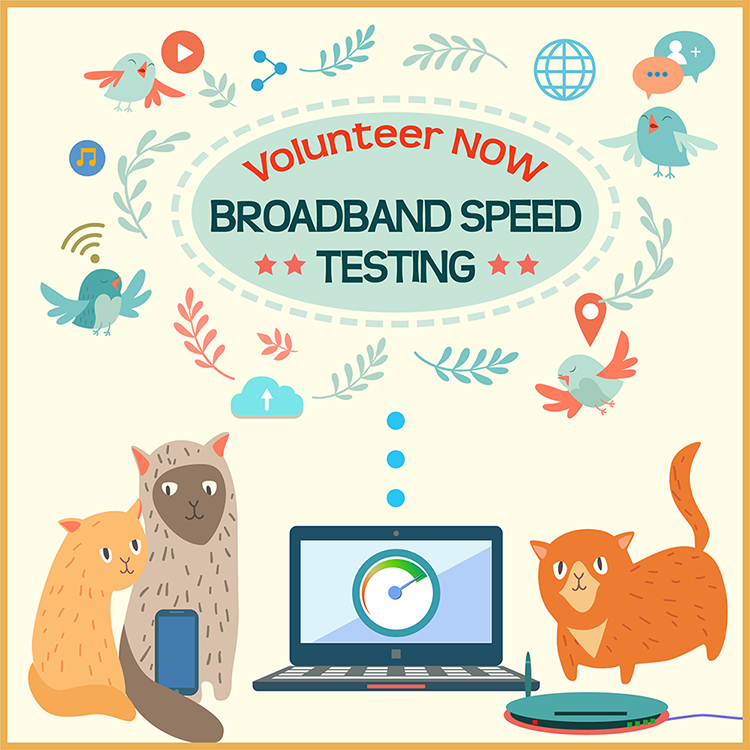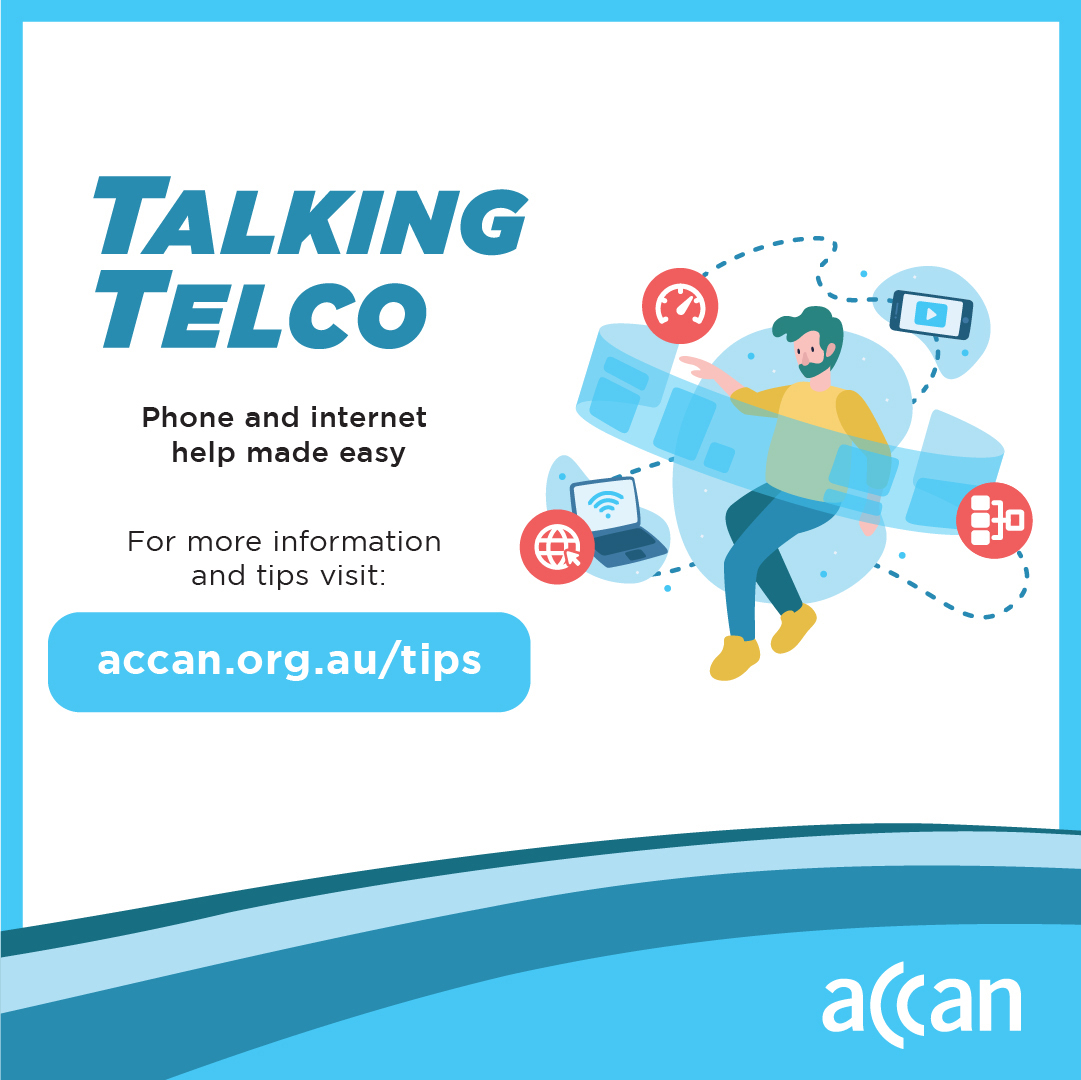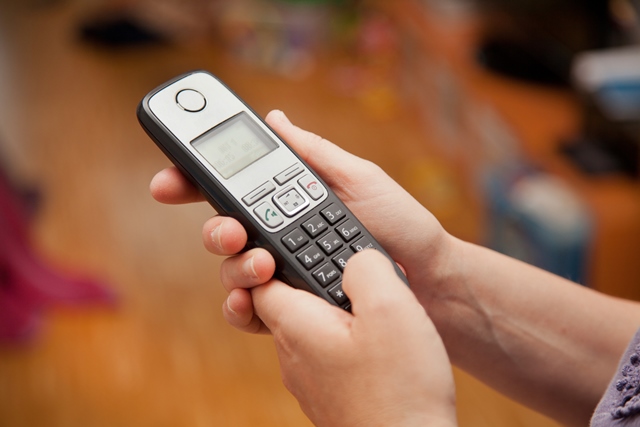Key Dates
Next Grant Round:
Applications for funding will open early 2025.
> Information about our Grants Program
Independent Grants Panel:
Results of the recent EOI will be notified Dec 2024.
> Information about our Panel
We can help: grants@accan.org.au
or phone 02 9288 4000
Subscribe to Grants Program mailings
 ACCAN CEO, Teresa Corbin, presented at the CommsDay Summit 2018 in Sydney on 9 April. This year's CommsDay Summit brought together telecoms industry leaders and politicians from across the country to discuss topics including the NBN, 5G, fixed and wireless technologies and the market.
ACCAN CEO, Teresa Corbin, presented at the CommsDay Summit 2018 in Sydney on 9 April. This year's CommsDay Summit brought together telecoms industry leaders and politicians from across the country to discuss topics including the NBN, 5G, fixed and wireless technologies and the market.
The speakers included Minister for Communications and the Arts, Senator the Hon Mitch Fifield, Telstra CEO, Andy Penn, as well as representatives from NBN, Huawei, Vodafone, ACMA and other telecommunications providers.
Teresa's presentation focused on four of ACCAN's key priorities for consumers in 2018:
• NBN & Consumers
• Consumer Protection
• Rural & Regional Issues
• Latest Affordability Stats
Read more: ACCAN presentation at Commsday 2018
Write comment (0 Comments)The Australian Human Rights Commission has heeded the Australian Communications Consumer Action Network (ACCAN)’s call for no Australian to be left offline, with the release of the Human Rights and Technology Final Report
The report, presented to the Attorney General, details the Australian Human Rights Commission’s support for a concessional broadband rate for low-income households to make internet access more affordable and improve digital inclusion.
“The past year has demonstrated just how essential it is to be online,” said ACCAN CEO, Teresa Corbin. “With Melbourne in the midst of its latest lockdown, and families forced back into remote work and schooling, we need to act now to make sure that our most vulnerable have access to a reliable, affordable broadband product.”
Read more: Australian Human Rights Commission supports ACCAN’s call for No Australian Left Offline
ACCAN recently submitted to the Department of Infrastructure, Transport, Regional Development, Communications and the Arts (the Department) on the Request for Information (RFI) – National Audit of Mobile Coverage. In addition to ACCAN’s comments on the RFI Response Form, we further recommended that the Department:
Read more: Request for Information on the National Audit of Mobile Coverage
 The Australian Competition & Consumer Commission (ACCC) released its first results from its Measuring Broadband Australia speed monitoring program and the results are generally positive, with NBN broadband services from iiNet, Optus, Telstra and TPG delivering between 80 per cent and just over 90 per cent of maximum plan speeds during peak times (7-11pm). On download speeds, out of the four, TPG beat the other three with 90.7 per cent, followed by iiNet with 88.6 per cent, then Telstra with 88.1 per cent, and Optus with 90.7 per cent. The service providers are also achieving positive upload speeds.
The Australian Competition & Consumer Commission (ACCC) released its first results from its Measuring Broadband Australia speed monitoring program and the results are generally positive, with NBN broadband services from iiNet, Optus, Telstra and TPG delivering between 80 per cent and just over 90 per cent of maximum plan speeds during peak times (7-11pm). On download speeds, out of the four, TPG beat the other three with 90.7 per cent, followed by iiNet with 88.6 per cent, then Telstra with 88.1 per cent, and Optus with 90.7 per cent. The service providers are also achieving positive upload speeds.
Read more: ACCC’s first NBN speed test results
Write comment (1 Comment)The Australian Communications Consumer Action Network (ACCAN) has welcomed the passage of the Privacy Amendment (Public Health Contact Information) Bill 2020. This is a key step to ensuring appropriate safeguards are in place to protect the privacy of Australians using the COVIDSafe app.
ACCAN CEO Teresa Corbin said that she was pleased that the legislation was amended to address a number of concerns raised by ACCAN and other consumer groups across the fields of health, technology, privacy, human rights, digital inclusion, communications and community interests.
Read more: ACCAN welcomes passage of COVIDSafe app legislation with amendments
ACCAN recently submitted to the Department of Infrastructure, Transport, Regional Development, Communications and the Arts (the Department) on the Peri-Urban Mobile Program (PUMP) Round 2 draft guidelines. ACCAN's submission recommended that the Department should:
- Amend clause 3.4.3 to make it mandatory to recognise the in-kind funding co-contributions of third parties.
- Promote a data-driven approach to site selection through service reliability.
Read more: Peri-Urban Mobile Program (PUMP) Round 2 draft guidelines
 Telstra admitted that over 100,000 of its customers were misled over third party charges by its Premium Billing service.
Telstra admitted that over 100,000 of its customers were misled over third party charges by its Premium Billing service.
Yesterday, the Australian Competition & Consumer Commission (ACCC) launched proceedings against the telco giant, alleging that Telstra made false or misleading representations to consumers regarding its third party billing services.
Read more: Telstra misled its customers over third party charges
Write comment (2 Comments)The Telecommunications Reform Package is due in the Senate this week and the Regional, Rural and Remote Communications Coalition (RRRCC) is calling for all sides of politics support passage of the legislation.
The two Bills that comprise the Telecommunications Reform Package include important provisions that will support guaranteed access to reliable telecommunications for all Australians, with an emphasis on regional, rural and remote areas.
The provisions will result in changes to carrier separation rules, provide new statutory infrastructure provider obligations on NBN Co, and will establish the Regional Broadband Scheme to support the partial cross-subsidisation of NBN satellite and fixed wireless services by other network providers.
ACCAN recently responded to the Digital Transformation Agency’s (DTA) Initial Data and Digital Government Strategy (the strategy). Our submission to this consultation included a range of recommendations which supported increasing the digital inclusion of Australians. These included:
 In 2018, technology and digital services are all around us. Consumers use the internet and telecommunications services to stay connected, go shopping, link into education and job opportunities and access government services.
In 2018, technology and digital services are all around us. Consumers use the internet and telecommunications services to stay connected, go shopping, link into education and job opportunities and access government services.
While we increasingly live our lives online, it’s vital that we don’t leave anyone behind. What gaps will appear in the connected world? Who will and won’t be able to access services due to limitations on connectivity? What can we do to ensure that people are not only connected but they also have the confidence to use new technologies to their benefit?
We will explore these questions and more at the 2018 ACCANect Conference which has the theme: ‘Confidence in the Connected World.’
Read more: Confidence in the connected world: ACCANect 2018
Write comment (0 Comments) The Australian Communications Consumer Action Network (ACCAN) has today released Talking Telco, a series of guides to help Australians understand how to connect their phone and internet services and how to get help when things go wrong.
The Australian Communications Consumer Action Network (ACCAN) has today released Talking Telco, a series of guides to help Australians understand how to connect their phone and internet services and how to get help when things go wrong.
Talking Telco has been supported by the Federal Government, with the Minister for Communications, Cyber Safety and the Arts, the Hon Paul Fletcher MP launching ACCAN’s new range of telco consumer advice.
As the current COVID-19 crisis has highlighted, phone and internet services now play an essential role in the everyday lives of Australians.
Read more: ACCAN launches new telco help guides with support of Federal Government
ACCAN recently responded to the Australian Competition and Consumer Commission’s (ACCC) public inquiry into the declaration of the domestic transmission capacity service, fixed line services and domestic mobile terminating access service discussion paper (the discussion paper).
 The Consumer Policy Research Centre (CPRC) is an independent, consumer-focused policy think-tank.
The Consumer Policy Research Centre (CPRC) is an independent, consumer-focused policy think-tank.
In December 2016, the Victorian Government established CPRC as a generalist policy research centre by expanding the remit of what was then the Consumer Utilities Advocacy Centre (CUAC).
CPRC undertakes evidence-based research to inform policy reform and business practice changes that improve consumer outcomes. The organisation conducts policy research internally, as well as in partnership with other research organisations. It also promotes, translates and supports the consumer research work of others.
Read more: Advancing fair outcomes for all consumers
Write comment (2 Comments)The Australian Communications Consumer Action Network (ACCAN) has welcomed news that NDIS participants will be able to purchase Assistive Technology to help them through the COVID-19 crisis and self-isolation.
“Having access to the right phone or assistive technology is vital for people with disability to be able to access important telehealth services during the COVID-19 pandemic,” said ACCAN Director of Inclusion Wayne Hawkins. “Allowing NDIS participants to use their existing plan funding to purchase Assistive Technology is a very welcomed step by the Government.”
Mr Hawkins explained that it was important for consumers to understand what mainstream and Assistive Technology is available and may best suit their individual needs.
ACCAN recently submitted to Communications Alliance’s scheduled review on C564:2020 Mobile Phone Base Station Deployment Industry Code.
ACCAN endorses the Code as drafted and supports reconfirming the Code, which sets out the technical procedures for involving communities in the planning, installing, and operation of mobile phone base stations.
Read more: C564:2020 Mobile Phone Base Station Deployment Industry Code
 The National Relay Service, audio description services and accessible ICT procurement were among the issues on the agenda at ACCAN’s 2018 Disability Advisory Forum on Wednesday 7 March in Sydney.
The National Relay Service, audio description services and accessible ICT procurement were among the issues on the agenda at ACCAN’s 2018 Disability Advisory Forum on Wednesday 7 March in Sydney.
Held yearly, the Disability Advisory Forum brings together groups representing people with disability to discuss telecommunications issues and accessibility and advises ACCAN on its policy priorities for the upcoming year.
Read more: Accessibility issues in 2018
Write comment (0 Comments)The Australian Communications Consumer Action Network (ACCAN) has applauded the expansion of Medicare-subsidised telehealth services for all Australians. However, the peak body for communications consumers cautioned that the full benefits of telehealth may not be realised if Australians are not online.
“While it is pleasing that the Government has listened to the medical community and made bulk-billed telehealth services available for all Australians, the underlying issue of connectivity remains,” said ACCAN CEO, Teresa Corbin.
ACCAN recently made a submission to the Department of Infrastructure, Transport, Regional Development, Communications and the Arts’ 2022 Review of the Disability Standards for Accessible Public Transport 2002 (the Transport Standards). This submission was developed in consultation with our members, including Deafness Forum of Australia and Blind Citizens Australia (BCA).
Additionally, ACCAN supported the recommendations made in BCA’s submission to the review of the Transport Standards.
Read more: Review of the Disability Standards for Accessible Public Transport 2002
 In our 2018-19 Pre-Budget submission, we took the opportunity to highlight telecommunication areas that could benefit from more funding in the Federal Budget.
In our 2018-19 Pre-Budget submission, we took the opportunity to highlight telecommunication areas that could benefit from more funding in the Federal Budget.
Our recommendations span a range of issues, from mobile coverage to affordability and accessibility. Many of these are not new recommendations, but they are ones that are important to consumers and worth highlighting once again.
Read more: Calling for telecommunications funding in the Federal Budget
Write comment (0 Comments)The Australian Communications Consumer Action Network (ACCAN) has urged the Federal Government to prioritise a specific stimulus strategy for telecommunications services to keep Australians connected during the COVID-19 pandemic.
Continuing social distancing and self-isolation efforts have resulted in millions of Australians increasingly relying on their home broadband service. As Australia’s peak body representing telecommunications consumers, ACCAN is calling on the Government to fast-track a proposal for a wholesale broadband concession that would provide financially stressed Australians with cheaper home broadband.
Read more: Government must act to address broadband affordability as unemployment predicted to rise
ACCAN recently submitted our comments on the draft grant opportunity guidelines for Rounds 1 and 2 of the Telecommunications Disaster Resilience Innovation program.
ACCAN supports programs that mitigate the impact of natural disasters by strengthening the resilience of telecommunications facilities throughout Australia. In ACCAN’s view, the guidelines provide sound guidance to facilitate grant opportunities that improve the preparedness of Australia’s telecommunications networks against rising climate risks.
 ACCAN has welcomed Telstra’s announcement that it will no longer charge its customers for having a Silent Line from 18 February, 2018.
ACCAN has welcomed Telstra’s announcement that it will no longer charge its customers for having a Silent Line from 18 February, 2018.
Having a Silent Line means that your number is not listed in a public directory or displayed on the recipient’s handset when you make a call. Previously, Telstra customers had to pay $2.93 per month for this service.
Read more: Telstra has scrapped Silent Line fees
Write comment (3 Comments)A coalition of nearly 30 community sector organisations and advocates has urged the Federal Government to address the affordability of communications services and equipment to support Australians in need during the COVID-19 pandemic.
In a letter to the Minister for Communications, Cyber Safety Cyber and the Arts, Paul Fletcher, cross-sector community organisations including Australian Communications Consumer Action Network (ACCAN), CHOICE, The Australian Council of Social Services (ACOSS), and The Smith Family outlined several recommendations that would enable communities to keep connected, work remotely, and access essential services such as education, government services, and telehealth.
ACCAN recently provided comment on further pricing documents regarding the Variation to the NBN Co Special Access Undertaking Draft Decision consultation to the Australian Competition and Consumer Commission (ACCC).
ACCAN’s submission details our first assessment of the further documentation provided by NBN Co. In our view the additional material does not adequately address the concerns raised by ACCAN in our previous submissions. With respect to the further documentation provided by NBN Co. We consider that:
